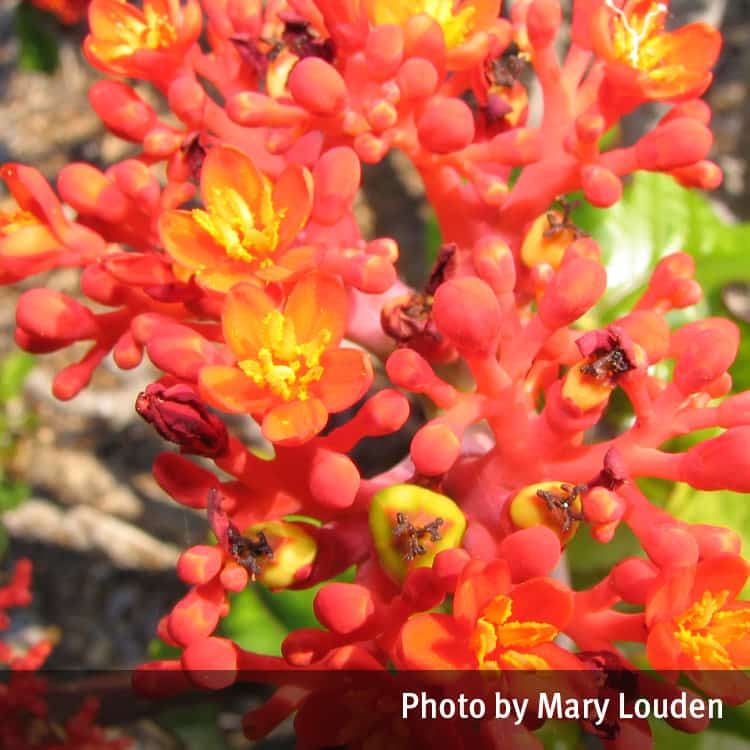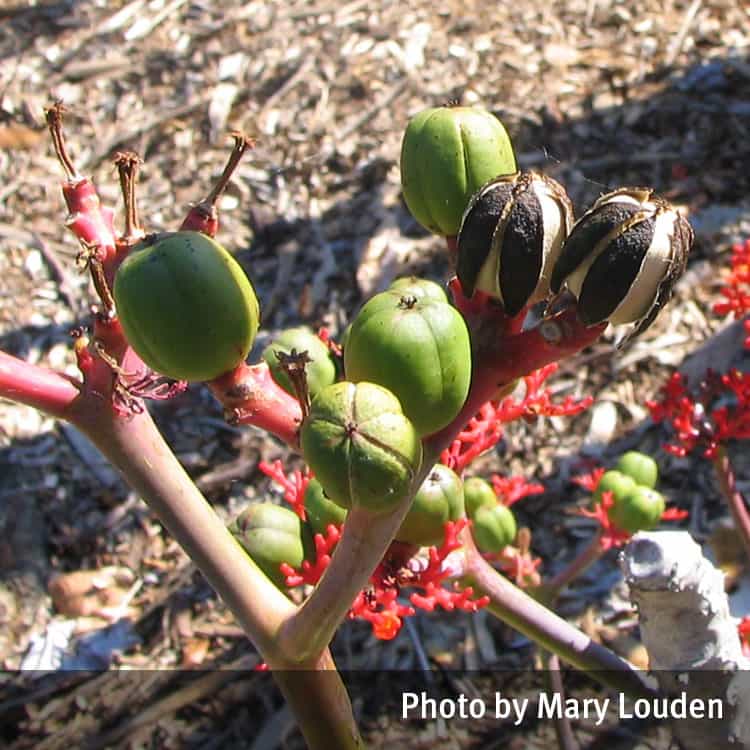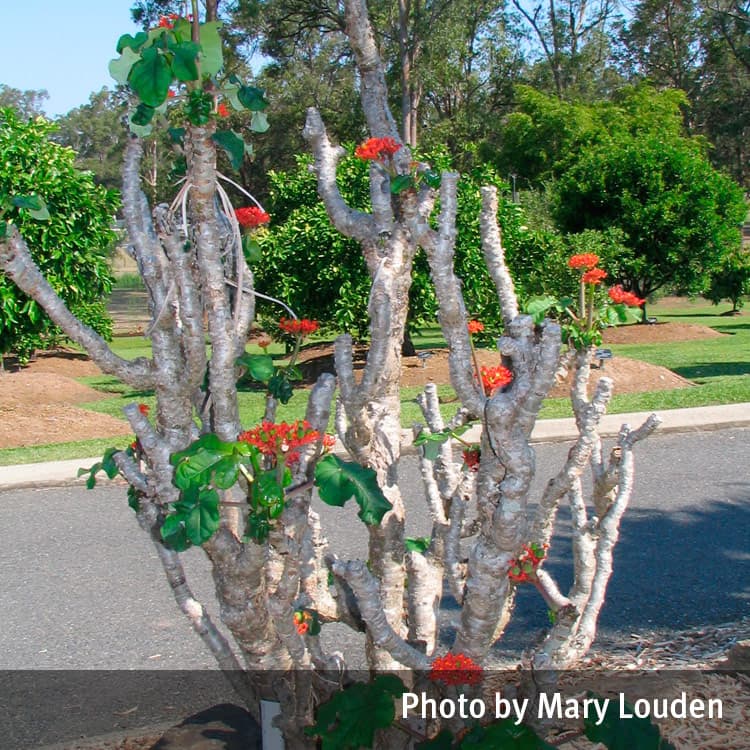Warning
For all ingestions seek urgent medical assistance.
Description
A deciduous ornamental often grown as a pot plant or in rockeries, this shrub has a thick gouty, swollen stem up to 60cm, often a few large leaves near the top of the plant.
The flowers are very small and coral red in colour. Flowers throughout most of the year.
The leaves are large, round, lobed and dark green, up to 30cm wide, with a wavy margin and a stout stalk attached on the underside of the leaf.
Toxicity
Symptoms
The seeds are toxic, although the symptoms produced are not as severe as those associated with J.curcas. Symptoms can include abdominal pain and a burning sensation in the throat, followed by vomiting and diarrhoea.
Images



Details
Common name: Guatemala rhubarb
Botanical name: Jatropha podagrica
Other common names: Gout stick, gout plant, also known as coral plant or physic nut.
Family: Euphorbiaceae
General description: A deciduous ornamental often grown as a pot plant or in rockeries, this shrub has a thick gouty, swollen stem up to 60cm, often a few large leaves near the top of the plant.
Flowers: The flowers are very small and coral red in colour. Flowers throughout most of the year.
Leaves: The leaves are large, round, lobed and dark green, up to 30cm wide, with a wavy margin and a stout stalk attached on the underside of the leaf.
Fruit/Berries: The fruit are yellow, 3-angled, usually contain three seeds and are generally less than 2.5cm long.
Other: The sap is copious and clear. Contact with the sap can cause dermatitis.